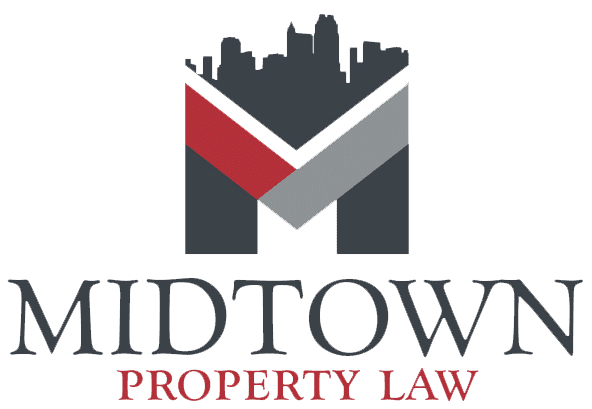
Midtown property regulation is a critical part in the metropolitan land area, especially in regions with high populace thickness. This area of regulation, enveloping all that from drafting guidelines to property possession privileges, is fundamental for all gatherings in land, including buyers, financial backers, and lawful specialists. The motivation behind this article is to furnish an extensive aide loaded up with significant experiences and noteworthy hints for really moving through the intricacies of Midtown property regulation. Anyone interested in investing, purchasing, or managing property in this bustling area needs to be familiar with Midtown Property Law.
What is Midtown Property Law?
Midtown property guideline envelops the legalities and practices related with land in clamoring metropolitan conditions, frequently requiring the skill of a conveyancing lawyer. This developing field investigates angles going from property proprietorship to land use, with the novel difficulties of thickly populated regions adding to its importance. Drafting guidelines, local charge evaluations, landowner inhabitant connections, and land exchanges are basic pieces of this lawful space. An unmistakable comprehension of these viewpoints, frequently worked with by a talented conveyancing lawyer, is fundamental for anybody associated with metropolitan land, whether for individual or business purposes.
1. Zoning Laws and Regulations
Zoning laws are at the heart of Midtown property law. The utilization of properties in unambiguous metropolitan regions is represented by these significant guidelines, which affect advancements in the private, business, and modern areas. For any property development, renovation, or investment activity, understanding and adhering to zoning laws is essential because they determine everything from building heights to intended uses. Master legitimate information is regularly important to explore these regulations, particularly in circumstances including fluctuations, exclusions, or lawful struggles.
2. Real Estate Transactions
The process of buying or selling real estate in Midtown involves a series of complex legal steps. From initial property evaluation and drafting sales contracts to the final stages of closing deals, each step requires meticulous legal and procedural compliance. Understanding these steps is critical for smooth transactions:
Step-by-Step Guide to a Property Transaction:
- Property Evaluation: Determining the value and potential of a property is the first crucial step.This includes surveying the actual angles as well as considering market patterns and future improvement plans nearby.
- Legal Documentation: Preparing and reviewing legal documents, such as sales agreements and title deeds, is essential. This step guarantees that all legitimate parts of the exchange are covered and that the two players’ inclinations are safeguarded.
- Checks for compliance: It is essential to check that the property complies with local zoning regulations, building codes, and other regulations. By taking this step, legal issues won’t arise in the future and the transaction will run smoothly.
- Settling the Negotiation: The last stage includes legitimate systems to move possession, including installment handling, marking deeds, and keep the exchange in freely available reports.
Tenants’ Rights and Landlord Obligations

In Midtown regions, where leasing is a typical work on, understanding the elements of property manager occupant connections is fundamental.This includes comprehending lease agreements, rent control laws, and the rights and responsibilities of both parties. Tenants must be aware of their rights when it comes to eviction, living conditions, and rent. Landowners, then again, should follow regulations on property support, lease assortment, and occupant expulsions, offsetting their financial matters with lawful commitments.
3. Investment in Midtown Real Estate
Putting resources into Midtown land presents one of a kind open doors and difficulties. The appeal for properties here frequently means critical speculation returns. However, it requires an in-depth understanding of a number of factors, including market trends, legal compliance, and effective risk management. To prevail in this cutthroat market:
Tips for Successful Real Estate Investment:
- Market Research: Conducting thorough research on current and future trends in property values and rental rates is fundamental. This helps in identifying lucrative investment opportunities and making informed decisions.
- Legal Advice: Consulting with experts in Midtown property law is crucial. They can provide insights into legal nuances, help navigate complex regulations, and offer guidance on contracts and negotiations.
- Risk Assessment: Evaluating potential risks, such as market fluctuations, legal changes, or property-specific issues, is essential. This step involves developing strategies to mitigate these risks and protect your investment.
Legal Representation and Advice
Professional legal advice is invaluable in the realm of Midtown property law. Legitimate experts not just guide in appreciating and complying with perplexing guidelines yet in addition go about as backers in debates and talks. Including drafting agreements, resolving disputes, ensuring legal security, and minimizing risks associated with property transfers, they are able to provide direction from a variety of perspectives.
4. Future of Midtown Property Law
The eventual fate of Midtown property regulation is molded by progressing lawful, innovative, and market changes. Anyone involved in urban real estate must stay up to date on these developments. Seeing recent fads, conforming to new regulations, and utilizing innovative progressions for powerful property the board and exchanges are all important for this.
Conclusion
Investigating the intricacies of Midtown property guideline is a difficult yet remunerating try. With the right information, direction, and legal assistance, individuals and organizations can unreservedly participate in property exchanges, speculations, and the board in these powerful metropolitan areas. It is essential to comprehend the nuances of this field in order to make progress in the dynamic world of metropolitan land, ensure legal consistency, and make informed decisions.
